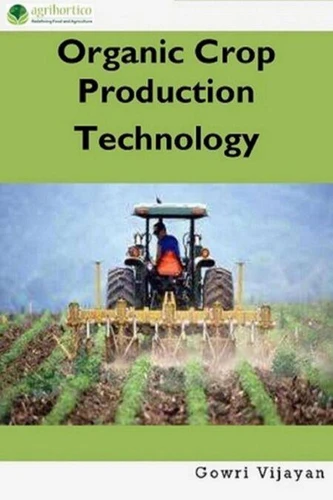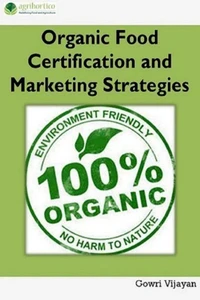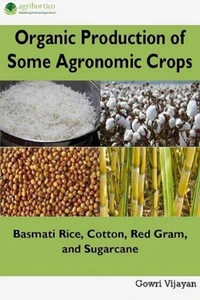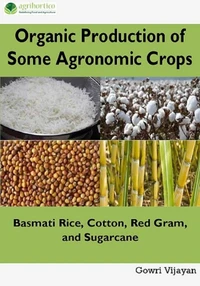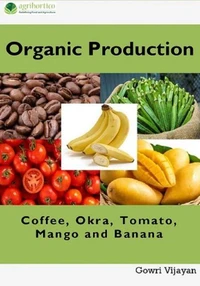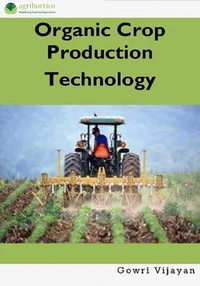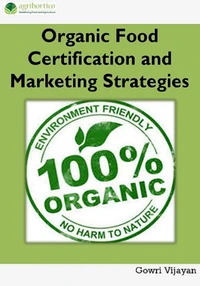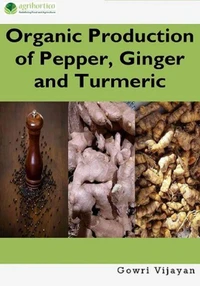Organic Crop Production Technology
Par :Formats :
Disponible dans votre compte client Decitre ou Furet du Nord dès validation de votre commande. Le format ePub est :
- Compatible avec une lecture sur My Vivlio (smartphone, tablette, ordinateur)
- Compatible avec une lecture sur liseuses Vivlio
- Pour les liseuses autres que Vivlio, vous devez utiliser le logiciel Adobe Digital Edition. Non compatible avec la lecture sur les liseuses Kindle, Remarkable et Sony
 , qui est-ce ?
, qui est-ce ?Notre partenaire de plateforme de lecture numérique où vous retrouverez l'ensemble de vos ebooks gratuitement
Pour en savoir plus sur nos ebooks, consultez notre aide en ligne ici
- FormatePub
- ISBN978-1-393-95443-9
- EAN9781393954439
- Date de parution15/03/2021
- Protection num.pas de protection
- Infos supplémentairesepub
- ÉditeurRelay Publishing
Résumé
According to the International Federation of Organic Agriculture Movements (IFOAM), Organic agriculture is a "production system that sustains the health of soils, eco-systems and people. It relies on ecological processes, biodiversity and cycles adapted to local conditions, rather than the use of inputs with adverse effects. Organic agriculture combines tradition, innovation and science to benefit the shared environment and promote fair relationships and a good quality of life for all involved".
According to FAO, "Organic is a claim on the production process rather than a claim on the product itself". National Organic Program (NOP) of United States Department of Agriculture (USDA) defines 'Organic' as "a labeling term that indicated that the food or other agricultural product has been produced through approved methods that integrate cultural, biological and mechanical practices that foster cycling of resources, promote ecological balance, and conserve biodiversity".
According to FAO, "Organic is a claim on the production process rather than a claim on the product itself". National Organic Program (NOP) of United States Department of Agriculture (USDA) defines 'Organic' as "a labeling term that indicated that the food or other agricultural product has been produced through approved methods that integrate cultural, biological and mechanical practices that foster cycling of resources, promote ecological balance, and conserve biodiversity".
According to the International Federation of Organic Agriculture Movements (IFOAM), Organic agriculture is a "production system that sustains the health of soils, eco-systems and people. It relies on ecological processes, biodiversity and cycles adapted to local conditions, rather than the use of inputs with adverse effects. Organic agriculture combines tradition, innovation and science to benefit the shared environment and promote fair relationships and a good quality of life for all involved".
According to FAO, "Organic is a claim on the production process rather than a claim on the product itself". National Organic Program (NOP) of United States Department of Agriculture (USDA) defines 'Organic' as "a labeling term that indicated that the food or other agricultural product has been produced through approved methods that integrate cultural, biological and mechanical practices that foster cycling of resources, promote ecological balance, and conserve biodiversity".
According to FAO, "Organic is a claim on the production process rather than a claim on the product itself". National Organic Program (NOP) of United States Department of Agriculture (USDA) defines 'Organic' as "a labeling term that indicated that the food or other agricultural product has been produced through approved methods that integrate cultural, biological and mechanical practices that foster cycling of resources, promote ecological balance, and conserve biodiversity".

